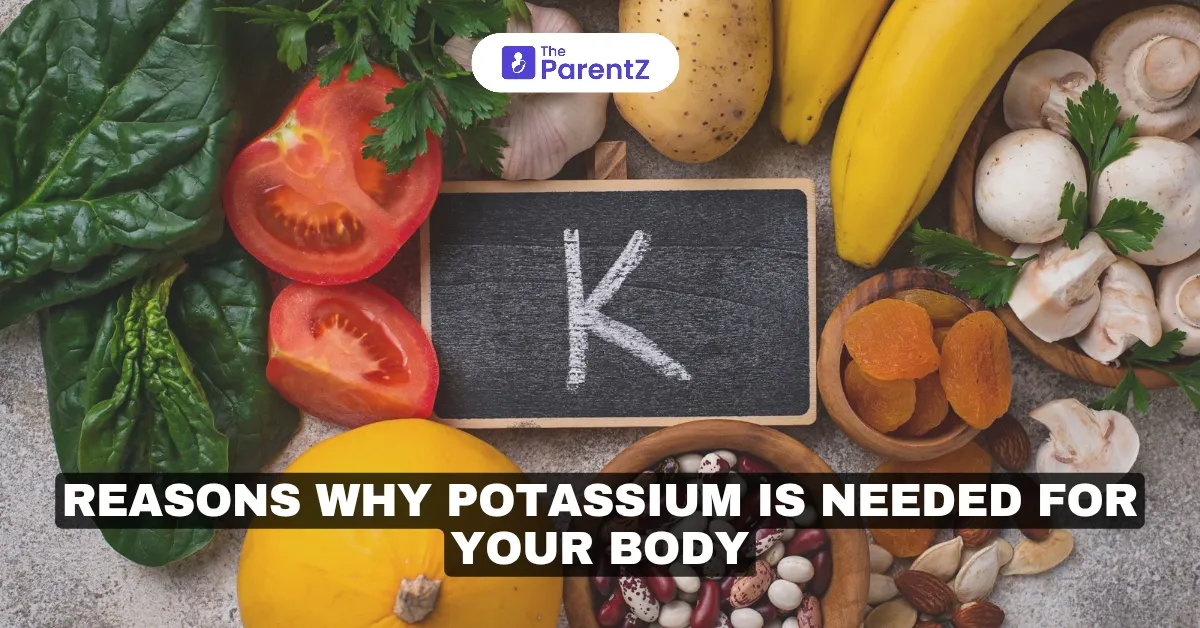Did you know that without enough potassium, your body simply won't work at its best?
Yes, you read it right.
From keeping your heart beating consistently to ensuring your muscles don’t cramp, potassium plays a big role in good health.
Despite this, almost 98 percent of people aren’t getting enough of it, according to the National Institutes of Health. And potassium deficiency can result in fatigue, muscle weakness, and serious heart issues.
Here are five reasons why potassium is absolutely essential for your body.
Helps Maintain Healthy Blood Pressure
One of potassium’s most important roles is keeping your blood pressure in check. Since high blood pressure is one of the major causes of heart disease and strokes, a diet low in potassium can eventually lead to severe heart illnesses.
Here’s another fact—potassium also helps counteract the effects of sodium.
In simple words, while sodium raises blood pressure, potassium helps flush out excess sodium through your urine, keeping your blood pressure stable.
In fact, according to research, increasing potassium intake can significantly lower blood pressure, especially in people who consume too much salt.
Want to increase your potassium intake? Here are some of the best food sources rich in potassium:
| Food | Potassium per Serving |
| Bananas | 450 mg per banana |
| Sweet Potatoes | 540 mg per medium sweet potato |
| Avocados | 700 mg per avocado |
| Spinach | 840 mg per cup (cooked) |
| Beans (Lentils, Kidney Beans) | 600-700 mg per cup (cooked) |
| Yogurt | 380 mg per cup |
| Oranges | 250 mg per medium orange |
Supports Heart and Muscle Function
Similar to other muscles in the body, your heart too relies on potassium to function properly.
Potassium helps regulate heart contractions and ensures your heartbeat stays steady and strong. However, without enough potassium, you might experience irregular rhythms.
Besides, your muscles also need potassium to contract and relax properly.
So if you ever had a painful leg cramp out of nowhere, a low potassium level might be to blame! In fact, as per studies, potassium can help prevent muscle weakness, spasms, and cramps.
Prevents Kidney Stones
Kidney stones is indeed something you definitely want to avoid. One way to reduce your risk is to eat more potassium-rich foods.
Yes, potassium actually helps by lowering calcium levels in urine, ultimately reducing the risk of developing calcium-based kidney stones.
In a study too, it was found that people who consumed more potassium had a significantly lower risk of developing kidney stones.
Boosts Nerve Function and Brain Health
Your brain is constantly sending and receiving signals through your nervous system.
And potassium plays a big role in making sure these signals travel quickly and efficiently. Lack of it can cause your nerves to become slow and sluggish.
The result? Fatigue, brain fog, and mood changes.
Did you know that potassium also plays a helpful role in reducing the risk of stroke?
Helps Maintain Fluid Balance
Your body is made up of about 60 percent water. So, what’s the relation? Potassium is also essential for keeping that water balance just right. It works together with sodium to ensure that fluid is evenly distributed in your cells, thereby preventing dehydration and bloating.
So if you probably feel swollen after a salty meal, it's actually your body holding onto excess water due to too much sodium.
Getting enough potassium can, however, help flush out excess fluid, making you feel more energized.
How Much Potassium Do You Need?
Here’s the recommended daily intake of potassium that varies by age and gender:
| Age Group | Daily Potassium Requirement (mg) |
| Children (1-3 years) | 2,000 mg |
| Children (4-8 years) | 2,300 mg |
| Teens (9-18 years) | 2,500-3,000 mg |
| Adults (Men) | 3,400 mg |
| Adults (Women) | 2,600 mg |
| Pregnant Women | 2,900 mg |
Conclusion
Potassium is a vital nutrient for your body that plays a big role in maintaining healthy blood pressure and preventing muscle cramps and kidney stones. It even keeps you feeling strong and energized throughout the day. If you’re still not, it's time to incorporate some potassium-rich foods into your diet.





Be the first one to comment on this story.